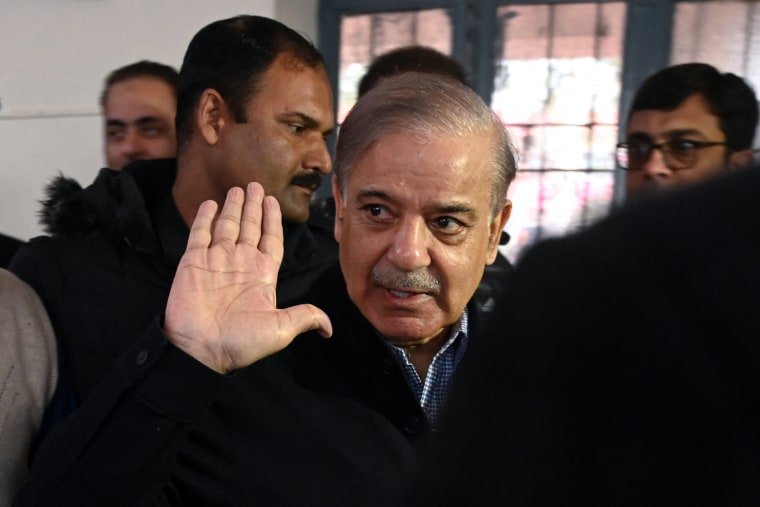
In Short
- Shehbaz sharif was elected as pakistan’s prime minister by the newly established parliament amidst election delays and accusations of fraud.
- His victory came after a tumultuous election period and a delayed coalition government formation.
- Sharif’s return to power marks a significant development in pakistani politics, amidst ongoing challenges and protests.
- The election outcome has raised questions about the future direction of pakistan and its governance.
TFD – Dive into the turbulent world of Pakistani politics with the election of Shehbaz Sharif as Prime Minister amidst controversy and accusations. Get the full story on CNN.
KARACHI — Shehbaz Sharif was chosen prime minister of Pakistan on Sunday for a second time by the country’s recently established parliament. The formation of a coalition government had been delayed for three weeks due to unpredictable national elections.
With 92 votes, he defeated Omar Ayub, the contender supported by imprisoned former prime minister Imran Khan. Returning to his previous position, Sharif led a caretaker administration until the parliament was dissolved in August in preparation for the elections. No single party won enough seats to form government on their own.
Speaker of the National Assembly Ayaz Sadiq stated that Shehbaz Sharif had been elected prime minister of the Islamic Republic of Pakistan, saying he had received 201 votes, more than the necessary 169 in the assembly.
The Khan-backed Sunni Ittehad Council (SIC) party loudly protested the declaration. The MPs yelled chants demanding Khan’s release and claimed Sharif was elected through electoral fraud.
Sharif covered a wide range of subjects in his speech, including the need for international relations and economic reforms, but he refrained from making any firm policy announcements.
Regarding the endeavor to extricate Pakistan from numerous difficulties, he remarked, “The work is difficult but it is not impossible.”
He extended an invitation to the opposition to discuss resolving disagreements in politics and policy.
SIC persisted in its protests throughout Sharif’s speech, yelling “mandate thieves” and waving posters with images of Khan.
A mobile internet outage, arrests, and violence during the run-up to the election on February 8 caused problems for the proceedings, and the results’ unusually long delay led to claims that the vote was manipulated.
Sharif, 72, is the younger brother of Nawaz Sharif, the three-time prime minister who led the election campaign for the Pakistan Muslim League-Nawaz (PML-N) party.
Khan-backed candidates won the most seats, but Shehbaz Sharif became prime minister after his brother resigned, thanks to the PML-N and Pakistan Peoples Party’s agreement to establish a coalition government.
Shabaz Sharif has held the position of prime minister of Pakistan before without really winning an election. However, the country will not let him get away with stealing their mandate this time. According to close assistant to Khan Zulfikar Bukhari, “this is only going to make Pakistan nose further further economically, causing further deterioration as a nation” (Reuters).
The International Monetary Fund (IMF) deal, which is crucial, was successfully negotiated by Sharif’s administration during his previous term. However, the process was beset with difficulties, and the agreement’s requirements—which are set to expire in April—have increased costs and put more strain on lower-class and middle-class households.
The next accord to support the nation’s economy and address growing dissatisfaction over the country’s increasing poverty will need the new government to begin negotiations with the IMF right away.
The administration will also need to deal with persistent objections from Khan’s followers.
Ariba Shahid and Charlotte Greenfield reported, and Raju Gopalakrishnan, Miral Fahmy, and Elaine Hardcastle edited.
Conclusion
Shehbaz Sharif’s election as Prime Minister underscores the complexities of Pakistani politics and the challenges of forming a stable government amidst allegations of fraud. As Pakistan navigates through this turbulent period, the role of its leadership will be crucial in addressing the nation’s pressing issues and restoring stability.
Connect with us for the Latest, Current, and Breaking News news updates and videos from thefoxdaily.com. The most recent news in the United States, around the world , in business, opinion, technology, politics, and sports, follow Thefoxdaily on X, Facebook, and Instagram .